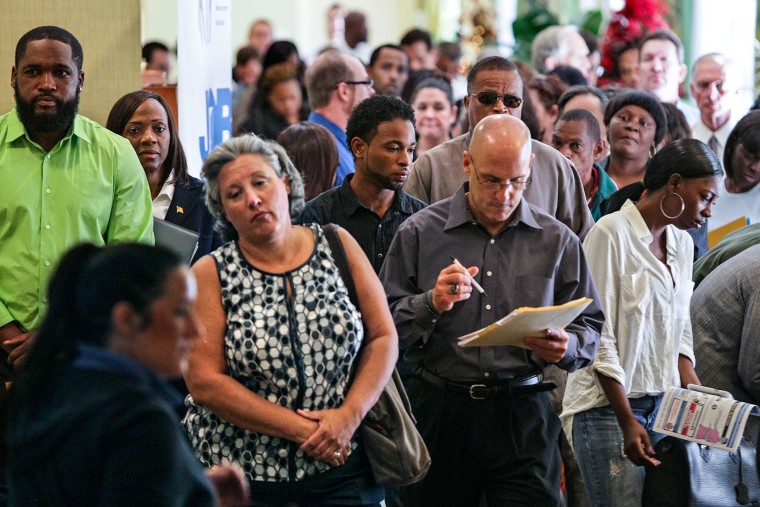The U.S. economy added 113,000 jobs in January, fueling concerns about a labor market slowdown after a second straight month of weak job growth.
The tepid numbers follow an abysmal December, when the economy added just 75,000 jobs, according to revised numbers. By comparison, the economy added an average of 182,000 jobs per month in 2013.
"The January 2014 payroll jobs gain was a second straight monthly disappointment," said PNC Bank economists Stuart Hoffman and Gus Faucher in a note, describing the numbers as well below their own forecasts and market consensus.
The unemployment rate fell slightly, from 6.7% to 6.6%—and this time it seems like it was for the right reasons. There has been great concern over the number of people who have given up looking for work altogether, which has been a key factor in driving down the unemployment rate in recent months. But the labor force participation ticked up slightly to 63% in January, suggesting that the unemployment rate's decrease last month happened because the jobless are actually finding work.
The weak report also raises questions about the end of the Federal Reserve's stimulus program. The central bank has begun to wind down its unprecendented bond-buying program as the economy and labor market have improved. But there's concern that tapping on the brakes too soon could make it harder for the economy to return to full employment. But so far, January's other signs of weakness don't seem to be deterring the Fed from its current course.
The number of long-term unemployed—those who've been searching for work for longer than 26 weeks—fell by 232,000 in January to 3.6 million. But it's unclear why, exactly, those numbers fell. While some people may have found jobs, others may have stopped looking for work because of the expiration of their federal unemployment benefits, which has proven to help people continue their job search.
Since Dec. 28, more than 1.7 million long-term unemployed Americans have been cut off from benefits as Republicans have blocked efforts to renew them, most recently stopping a three-month extension in the Senate on Thursday.
Construction, manufacturing, and wholesale trade were all key areas of private-sector job growth in January. But government cutbacks continue to be a drag on the economy. Federal government employment dropped by 12,000 in January, largely due to reductions in the Postal Service.
